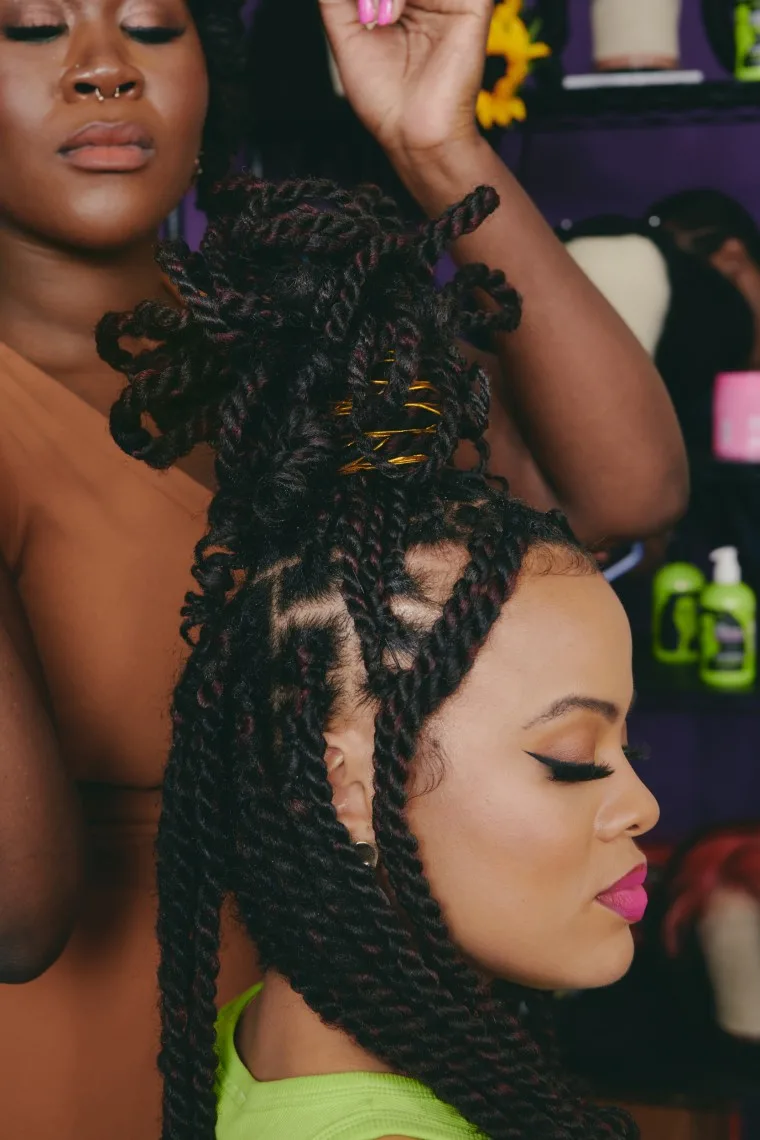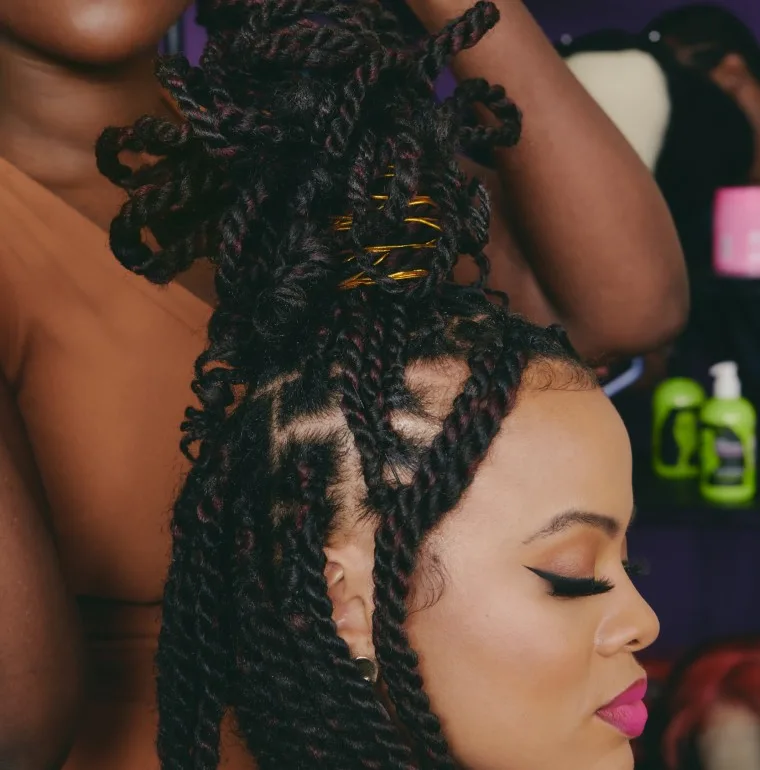To playwright Jocelyn Bioh, the African hair braiders of Harlem are icons.
“They’re a large part of the economy of Harlem,” Bioh said of the Manhattan neighborhood. “Those are women-owned businesses, and for the most part led.”
Despite the ubiquity of the salons, most visible along 125th Street in Manhattan, Bioh saw little attention paid to the lives of braiders beyond their occupation.
Her play “Jaja’s African Hair Braiding” debuted a few miles away from Harlem, at the Samuel J. Friedman Theatre, on Oct. 3. She described it as a love letter to the West African immigrant women who power these cultural institutions.
The 90-minute production replicates the dynamic hustle found in a typical salon day. Customers trickle in and out of the chairs, relaying distinct visions for their hair. Braiders gossip — in jest and in envy — as they labor over their clients. Afrobeats fill the rare silences.

Hair is demonstrably an art and a craft shown through the cast’s fashionable ’dos including zig-zag cornrows, pink and blonde braids with puffs at the end, and microbraids.
To those acquainted with braiding salons, there are familiar sights: Shine ‘n Jam gel used to neatly part hair on the scalp, packs of braiding hair from preferred vendor X-Pression, and a dramatic Nollywood movie playing in the background.
The women of the salon are relatively satisfied (“If you have skill for hand, they will always be full,” one worker, Ndidi (Maechi Aharanwa) says), but as the story unfolds, Bioh shows the salon is a space of communion.
“They all came from something really different from what they thought they’d be doing,” Bioh said.
Salon owner Jaja (Somi Kakoma) and her U.S.-reared daughter Marie (Dominique Thorne) are undocumented. The play takes a somber turn when, at its climax, Jaja is taken into custody by U.S. Immigration and Customs Enforcement and faces potential deportation.
The precarity of Jaja’s position and that of undocumented immigrants at large arose as a topic to explore for Bioh in 2019, when she frequently encountered anti-immigrant and nativist rhetoric on the news.


